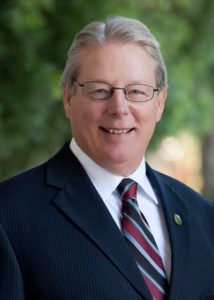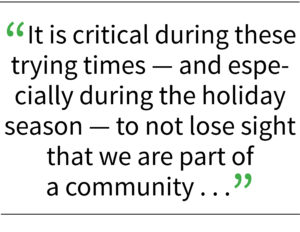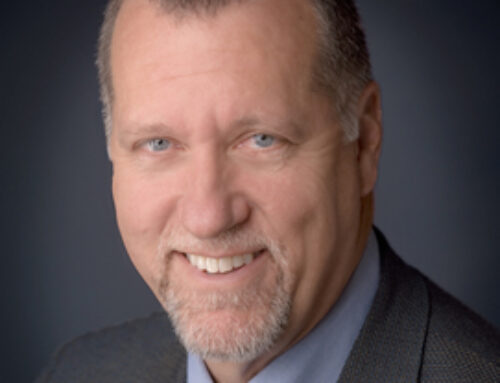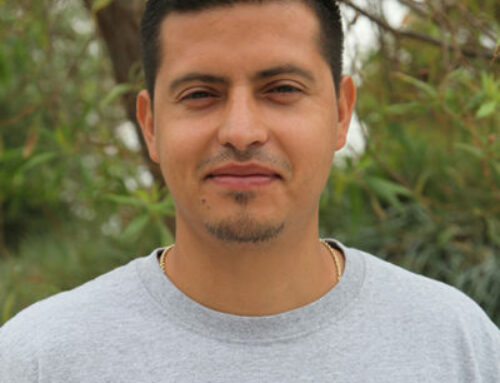Even before COVID-19, the nation’s suicide rate had reached historic highs
By Bill Monning

State Senator Bill Monning
With the coronavirus crisis, many families and individuals throughout America will be dealing with the loss of loved ones and financial hardship during the holidays. Adding to the emotional burdens during what is usually a festive time of the year, family gatherings will be reduced because of COVID-19.
Depression is strongly associated with suicide, and there is concern among mental health experts that the “holiday blues” will see a significant spike this winter. Some predict the suicide rate will dramatically increase as the COVID-19 pandemic adds pressure this time of year.
Suicidal thoughts can affect anyone regardless of age, gender or background. Even prior to COVID-19, the nation’s suicide rate had reached historic highs with rates at levels not seen since World War II.
 In addition to fears about our own health and safety, the pandemic has brought to our communities heightened economic and social pressures, creating “a perfect storm,” according to the Journal of the American Medical Association study released this past April. The study cites social isolation, decreased access to a support system, and barriers to mental health treatment as psychological risk factors that have been heightened since this public health crisis began.
In addition to fears about our own health and safety, the pandemic has brought to our communities heightened economic and social pressures, creating “a perfect storm,” according to the Journal of the American Medical Association study released this past April. The study cites social isolation, decreased access to a support system, and barriers to mental health treatment as psychological risk factors that have been heightened since this public health crisis began.
Despite this tragic set of circumstances, there is hope. Mental health advocates, prevention organizations, survivors, allies, and community members are united to promote suicide prevention awareness. The National Association of Mental Illness (NAMI) encourages sharing resources and stories to shed light on this topic. By reaching out to those affected by suicide, increasing awareness and connecting individuals with suicidal ideation to treatment services, we can all make a valuable difference in someone’s life.
 As a way to break down barriers to treatment, California now allows mental health professionals to conduct therapy sessions via tele-health — meaning clinicians are just a phone or a Zoom call away. Toll free hot-lines are also available. Seniors suffering from social isolation can utilize the Friendship Line, where they can call anytime to engage in a conversation.
As a way to break down barriers to treatment, California now allows mental health professionals to conduct therapy sessions via tele-health — meaning clinicians are just a phone or a Zoom call away. Toll free hot-lines are also available. Seniors suffering from social isolation can utilize the Friendship Line, where they can call anytime to engage in a conversation.
For those students who are also suffering, the California Department of Education recently launched a free online suicide prevention training program. The devastation that suicide causes in families and communities is heartbreaking. No one is immune to this public health crisis. Suicide is preventable and we all need to work toward a solution. Suicide has touched many of us and through the sharing of a story we can break down a stigma that so frequently accompanies discussion of suicide. It is critical during these trying times — and especially during the holiday season — to not lose sight that we are part of a community and the importance of extending ourselves to others.
 If you or someone you know is in crisis: National Suicide Prevention Lifeline 1-800-273-TALK (8255). If you want more information about suicide and mental health visit NAMI at www.nami.org. If a senior needs a warm conversation: Friendship Line 1-888-670-1360. If a student or parent needs guidance: CDE online suicide prevention program, LivingWorks – www.livingworks.net.
If you or someone you know is in crisis: National Suicide Prevention Lifeline 1-800-273-TALK (8255). If you want more information about suicide and mental health visit NAMI at www.nami.org. If a senior needs a warm conversation: Friendship Line 1-888-670-1360. If a student or parent needs guidance: CDE online suicide prevention program, LivingWorks – www.livingworks.net.
Bill Monning is a state senator representing the South Valley region.






